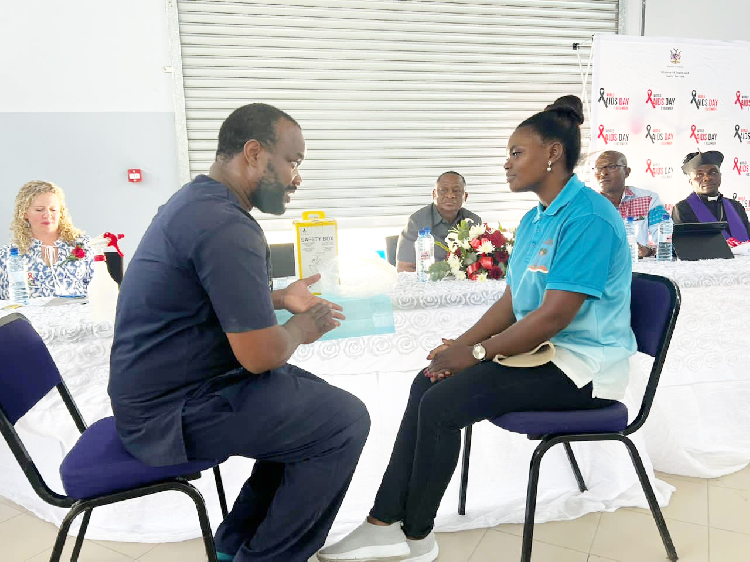[ad_1]
MINISTER of health and social services Kalumbi Shangula says people living with HIV are more open about their status due to a reduction in stigma.
The minister said this during an interview with Desert Radio on Wednesday ahead of World AIDS Day, which was commemorated yesterday.
“Currently in Namibia, 92% of people who are HIV positive know their status, and 98% of those who know their status are on treatment,” he said.
He said the country has made considerable progress.
The ministry celebrated World AIDS Day at the Ondangwa Trade and Exhibition Centre in the Oshana region.
“The event started with a match, and we invited all Namibians to ensure we fight the disease,” he said.
“I remember when the first case of HIV was detected in the country, there was so much stigma around it – not only around the people infected, but also their family members.
“They were called names, and people did not want to associate themselves with them,” he said.
Shangula said the stigma has now diminished and those infected are more open to reveal their status.
Namibia is dedicated to eliminating AIDS as a public health threat by 2030, the minister said.
Speaking at a World AIDS Day event, Shangula said no one should be discriminated against for using the ministry’s HIV-AIDS healthcare services.
Shangula said the ministry must work to include and prioritise the rights and healthcare needs of people living with HIV-AIDS.
He said to achieve epidemic control, the world community has set up fast-track targets based on the 95-95-95 target.
“The simple goal is that 95% of all HIV-positive people must be aware of their status in order to achieve epidemic containment,” Shangula said.
The minister said the aim is that 95% of those who are on HIV-AIDS treatment should become virally suppressed.
“In other words, as they take the medicine, the virus that causes AIDS will reduce significantly in their bodies,” he said.
To date, 98% of children living with HIV are on a dolutegravir-based regimen, which is an effective treatment to suppress viral load, he said.
Shangula said over 250 000 young adolescents, boys and men have taken up voluntary medical male circumcision.
He said the government appreciates the support of its development cooperation partners in the effort to fight HIV in the country.
Sandi Tjaronda, the executive director of the Namibia Network of AIDS Service Organisations (Nanaso), said adolescent girls, boys, and young women in Namibia continue to be disproportionately affected by HIV, while coverage of specific programmes for them remains unacceptably low.
Tjaronda said only a third of people in important demographics, such as gay men and other men who have sex with men, transgender people, drug users, sex workers, and prisoners, have regular access to preventative services.
Tjaronda said the nation is having trouble distributing condoms because of supply chain and procurement difficulties.
Oshana governor Elia Irimari said to eradicate HIV-AIDS, more community involvement, partnerships, and integration of HIV-AIDS services are needed to reach at-risk areas.
He said this programme enables people to keep considering new ideas for an all-encompassing and persistent approach.
[ad_2]
Source link




